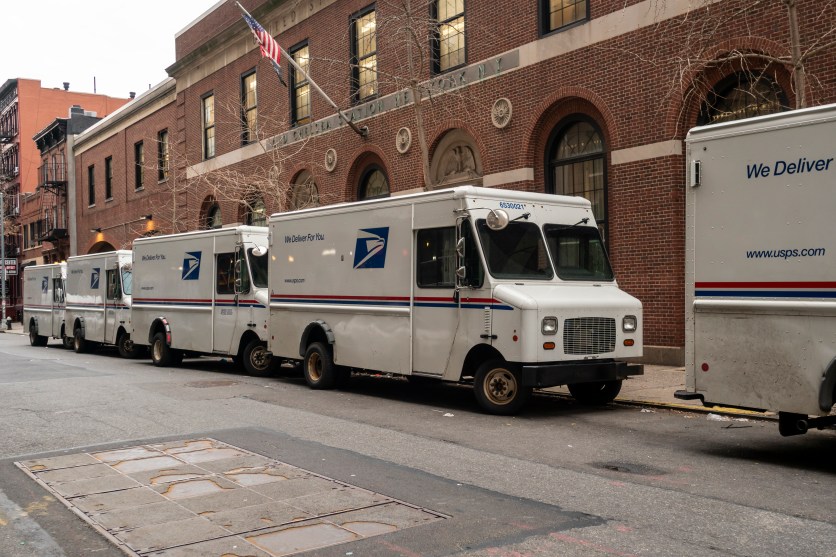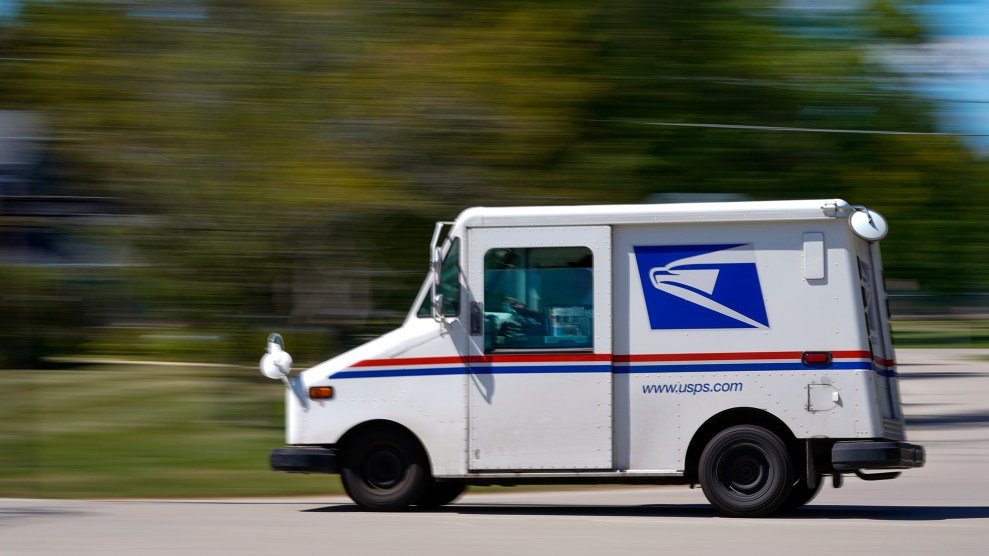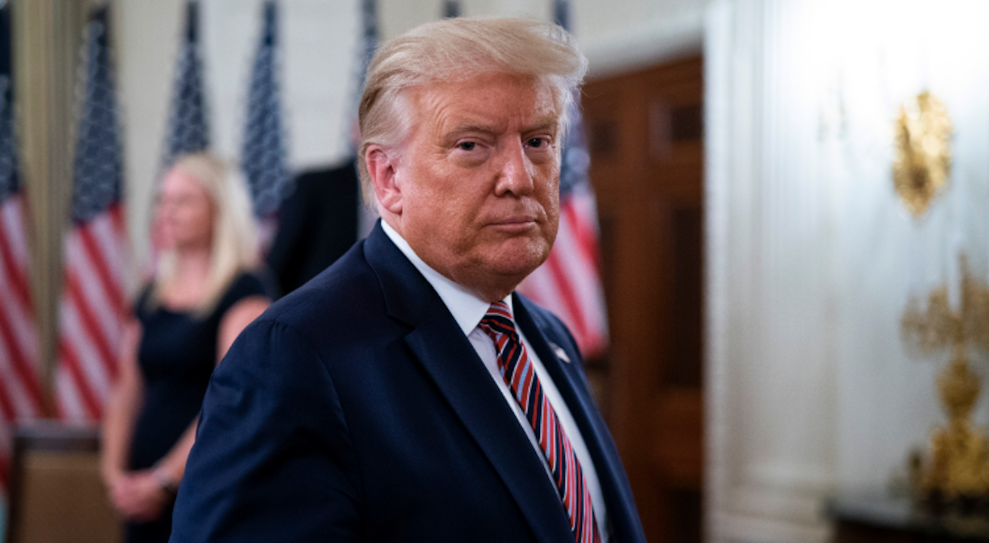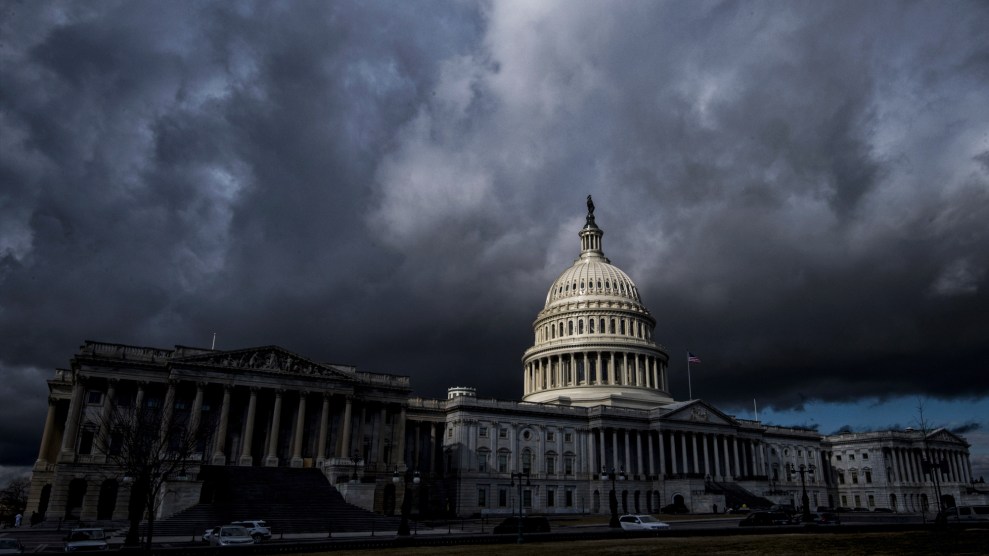
Mother Jones illustration; David Goldman/AP
At a December 2024 press conference in Mar-a-Lago, Donald Trump said his administration would be looking into privatizing the United States Postal Service, renewing efforts from his first presidential term to limit government programs and services. The Washington Post reported that same month that Trump stated the government should not subsidize the agency due to its annual financial losses.
“The days of bailouts and handouts are over,” House Oversight Committee Chair James Comer (R-KY) said during a December 2024 hearing with Postmaster General Louis DeJoy. “The American people spoke loud and clear…there’s going to be significant reform over the next four years.”
To understand more about what’s happening with USPS and get a better sense of where calls for government cuts are coming from, I talked with Mark Dimondstein, the president of the American Postal Workers Union. The union represents over 200,000 USPS employees and retirees.
This interview has been edited for length and clarity.
The Trump administration and groups like DOGE are pushing for more cuts to the federal government. For USPS, the argument seems to be that the mail system loses money and is no longer relevant, and therefore, should be curtailed. What do you think about this perspective?
To me, DOGE is a question of billionaire oligarchs trying to figure out how to get more money into their private profits. So all of this stuff about efficiency is really a cover for that, and that also carries over to those who want to privatize the Post Office. The Post Office takes in about $80 billion a year in revenue. Those on the private side of the industry want their hands on that money because when it’s in the public domain, they can’t use it to generate private profits.
What’s the value of the Post Office? I think the way that people communicate has changed fundamentally. I’m sure it changed when Morse code came in, when the telephone came in, and it certainly has changed with the advent of the internet. But change doesn’t mean that the Post Office no longer has tremendous value.
With the advent of the internet, you had this tremendous growth of e-commerce. The Postal Service is vital if e-commerce is going to work for everybody, particularly on the small business side. On the customer side, the Post Office is there by law for every single person, no matter who we are and where we live. If it were to be privatized, then the decisions on who gets to engage in e-commerce or who gets medicine through the mail would depend on whether a company can make a profit. The Post Office is based on non-profit, and it’s based on service. So it’s changing, but it’s invaluable.
Then there’s less tangible things like helping in natural disasters. The Post Office could really do a lot more than they do now—if they were allowed to—in terms of getting water and supplies in the stricken areas and the rebuilding that follows.
You also have the whole question of democratic rights, the question of voting by mail, the question of access to the ballot box. The Post Office provided millions of people in this last election access to the ballot box.
What could be accomplished if—instead of privatizing USPS—we expanded it?
The Post Office can do and should do a lot more than it does. There are all sorts of opportunities for expanded services. There’s new opportunity for financial services—tens of millions of low-income people are either unbanked or underbanked. In many parts of the world, people do basic banking and financial services through a public postal service.
People like Elon Musk are virulently anti-union. The Post Office is one of the largest unionized workforces in the country. And what the unions have brought to the postal workers is equal pay for equal work—opportunities for women workers, for Black workers, and workers of color who are usually marginalized and don’t have the same opportunities. We’re the largest employer of veterans outside of the Defense Department. So all of those things are mixed in.
There has been a lot of work against previous attempts to privatize USPS. Do you think these pushes for privatization will be any different with the new Trump administration?
There’s been constant efforts to piecemeal privatization of the Postal Service, and some of that has taken hold. There was Staples [starting in 2013], and a couple decades before, there was a similar effort for Sears’ department stores to do the retail. If the postal service gets turned over to the private sector, then prices are going to go up and service is going to go down. And what happens if that private company no longer can or wants to do it and people lose their services?
The White House in 2018 advocated for the breaking up and the selling off of the public postal service. So that’s a whole different level [of privatization].
What should people take away from these ongoing discussions about cutting USPS?
The Post Office is the low-cost anchor of the package industry. What’s keeping the rates and the package rates lower than they would be otherwise is because the Post Office is in the public domain. That’s one of the reasons why some of these big package companies would like to make it harder on the Post Office through more privatization. That low-cost anchor helps serve everybody.


















